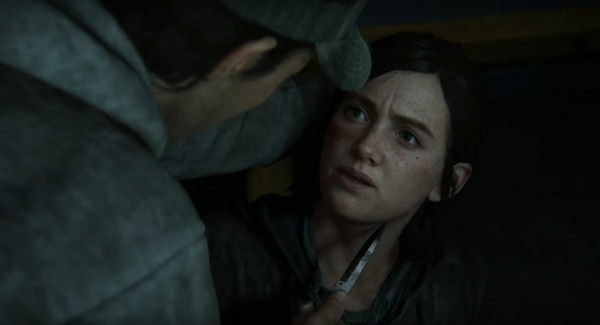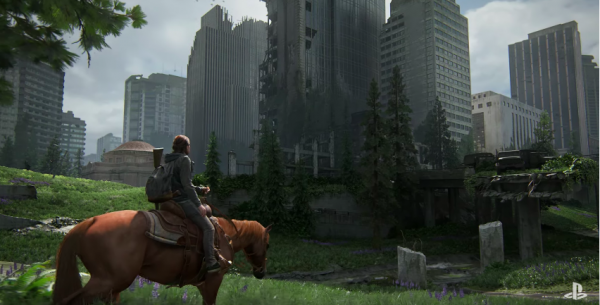The Last of Us Part II has ostensibly been in some stage of production since its acclaimed predecessor debuted in 2013, with the kernels of a sequel story likely germinating well before that. That's a long time to try to stay ahead of the technological curve, keep the narrative relevant, and try to predict the future. No one, not Naughty Dog, not Nostradamus, could have predicted that the game's ultimate launch would come in the middle of an ongoing once-in-a-century global pandemic, and both economic and civil crises in the United States. So while the game devs clearly can't be expected to change course on TLoU2 mere weeks before its release, it remains to be seen just how the revenge-driven, intimately violent story will be received by fans, critics, and neutral gamers alike in the midst of a maddening world.
In a recent interview with THR, Anthony Newman, co-game director of The Last of Us Part II and combat mechanics designer for the original game, shed some light on the heart of the sequel's story in addition to the new gameplay mechanics and responsive A.I. that aims to give players a more intimate experience. That may be a decision that elevates TLoU2 to Game of the Year status, or it could be an explosive mistake that backfires spectacularly, essentially turning the title into a walking trigger warning as real-world threats like disease, violence, and civil unrest continue to lurk at our doorsteps and ceaselessly pervade our social media scrolling.
Is The Last of Us Part II going to feel like escapist fantasy, too-real revenge-porn, or something in between?
The game can be summed up in a word from Newman:
"Vengeance: What it means, what the costs are, how much you might have to give up in order to pursue justice and the loss of humanity it entails."
Or is that a summary of the state of American streets right now? In an unpredictable turn of events, it's both. That may hurt or help the sales and reception for the game, but if we're being honest, it'll probably be a divided camp here, too. The push for realism may be too much for some gamers in these already stressing times:
"That puts the player in Ellie's shoes, realizing that they're fighting against real people who will respond in anguish when their friend dies, but also know that they have an understanding of where you are from a hint as subtle as a glass breaking or a bottle being thrown. That intelligence of the human enemies heightens the tension and the pressure on both Ellie and the player... I think what's great about the game is there's a kind of fractal structure which each layer — the personal and the global — is centered around expressing this theme of the cycle of violence..."
If you can't get past the parallels to the real world with that statement, this quote about warring factions in the game's regions isn't going to be much of a balm:
"They are locked in this struggle of never ending retribution and it has a great cost to both sides, both in terms of loss of life and a high moral penalty,"
Yikes. In any other week / month / year, this would be a great setup for a heightened urban survival fantasy, but right here and right now ... it could be cathartic, it could be triggering, it could be something else entirely. Newman, at the very least, is aware of all of those possibilities:
"If you look at fantasies about a simulation of real life that is so immersive that you have trouble divorcing it from reality, at their core — whether it's Holodek [the fictional device from Star Trek where characters interact with virtual reality environments] or Westworld, these are games, and I can't imagine a more exciting thing to explore than a media that can so thoroughly simulate every dimension of our actual lives."
What he's missing, however, is that a lot of people look to games as escapism, not just an in-your-face retelling of real-world violence and schisms. The blame doesn't lay on Naughty Dog by any means, but the reality is that art imitating life may just be too much for some folks to handle right now. And that's okay.
If you're not at all turned off by this comparison though, feel free to watch the latest State of Play installment below to get more on The Last of Us Part II's gameplay mechanics and a new bit of gameplay itself:
Dave Trumbore is Collider's Senior Editor overseeing Streaming Content, Animation, Video Games, and all those weird Saturday-morning cartoons no one else remembers. Test his trivia IQ on Twitter @DrClawMD



